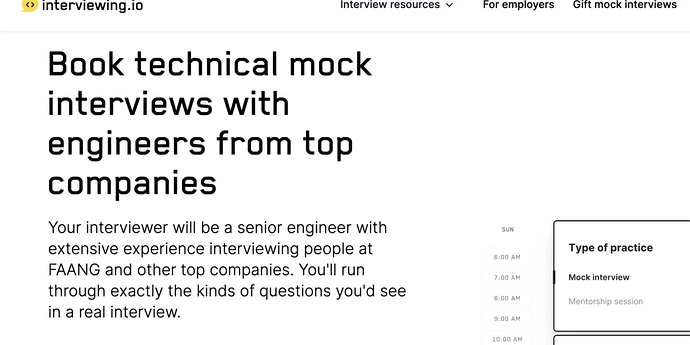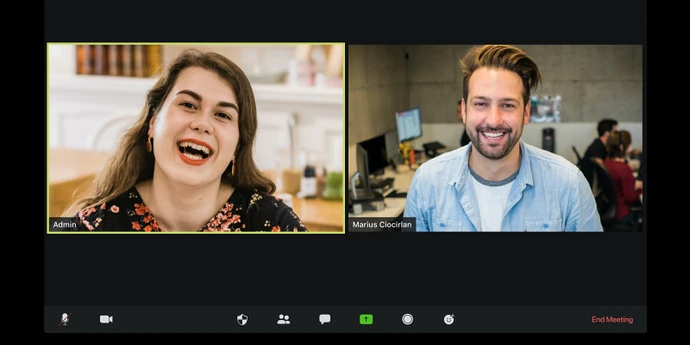Got an offer? Congratulations! If you’re looking to maximize your offer, we’ve got you covered with our list of the best salary negotiation services.
Let's be clear: you should ALWAYS negotiate your salary. It's a no-lose situation, and the long-term financial benefits can be huge.
But, people don't do it because they don't know how to. That's why we've put together this guide, with advice from salary negotiation expert Alex and recommendations for the best services to use.
- About salary negotiation
- Best salary negotiation platforms & services
- More salary negotiation resources
1. About salary negotiation ↑
Salary negotiation can significantly impact your earning potential throughout your career. It's an opportunity to advocate for your value and secure fair compensation for your skills, experience, and potential contributions.
Here are the benefits of negotiating a salary:
- Higher starting salary: Successful negotiation can result in a substantially higher starting salary than the initial offer.
- Increased earning potential: A higher starting salary sets a stronger foundation for future salary increases and promotions.
- Sense of control: Negotiating your salary empowers you and gives you a sense of control over your financial future.
- Fair compensation: Negotiation ensures that you're compensated fairly for your skills and experience, preventing underpayment.
Still, people have reservations about negotiating their salaries. IGotAnOffer salary negotiation expert Alex, who co-wrote this guide with us, offers his insights and advice on the most common salary negotiation questions below.
Alex is a former Pathrise Salary Negotiation Consultant and has more than five years of experience helping hundreds of professionals land high-paying jobs and negotiate fair compensation collaboratively.
1.1 Should you negotiate salary? ↑
Yes, 10 out of 10 times, you should negotiate your job offer.
So, then why don't people negotiate?
Let’s look at the top 3 most common excuses people use to NOT negotiate, and allow me to shed some light on each point.
Excuse #1: “What if my offer gets rescinded when I negotiate?”
It is SO rare to get an offer rescinded.
First of all, the company has dedicated a ton of time and resources to sourcing and interviewing the right candidate. They’re giving you an offer because they believe you are the one.
The last thing they want to do is go back to square one or settle for their second choice.
Also, most companies expect you to negotiate and even leave room in the budget anticipating that. This is especially true at big corporations such as Google, Meta, McKinsey, etc.
In short, their first offer is never the best offer.
The only time I’ve seen offers rescinded is in the case where:
- They felt like you would be a liability. a.k.a., you were disrespectful or raised a big red flag after receiving the offer
- There’s a culture problem at their company
If they rescind an offer simply for negotiating, I promise you, you are dodging a bullet.
Excuse #2: “I’ll look greedy and ruin my relationships before starting.”
As I said, employers expect you to negotiate. The only way you would look greedy is by approaching them disrespectfully.
To avoid looking greedy, always reiterate your excitement for the role and why you’re interested before you make an ask.
Approach it collaboratively by asking thoughtful questions, seeking to understand their perspective rather than demanding a certain number or giving ultimatums.
Personally, I’ve found that employers have more respect for you if you negotiate, especially in roles where you need to sell your ideas internally to other stakeholders. They want to see you stand up for what you believe is right.
Excuse #3: “I don’t have any leverage.”
Wrong! Even as a new graduate, you may not have as much leverage as someone 10 years into their career. But this doesn’t mean you have 0 leverage.
Remember, they are hiring you for a reason. Learn what that reason is in the interview process and bring it up when you negotiate your offer.
Here are a few creative ways you can frame your leverage:
- Positive leverage: what they gain by hiring you (your unique value)
- Negative leverage: what they lose by not hiring you (competing offers, other interviews)
- Normative leverage: objective criteria for negotiation (agree on a source of truth for your market research)
1.2 What happens if you don’t negotiate?
Simply put, if you don’t negotiate, you leave a lot of money on the table—now AND over the course of your career.
You see, salaries have a compounding effect.
For example:
David starts his career with an $80K salary, and over a 40-year career, gets a 5% raise every year. Sally starts her career at $90K (because she negotiated for it) and gets the same 5% raise every year.
Result? Sally ends up making $1.2 million MORE than what David makes over his 40-year career.
Don’t be David. Negotiate that $10k more, and you won’t miss out on an extra $1.2 million when you retire.
1.3 What is a reasonable salary negotiation? ↑
What is “reasonable” depends on your situation. I’ve heard the rule of thumb in salary negotiation is asking for 20%–30% higher than the initial offer, then settling somewhere around 10%–20% higher.
BUT this is not universally applicable to every situation.
For example, you shouldn’t ask for 30% higher if your research tells you the offer is at the high end of the compensation range already.
A truly “reasonable” salary negotiation is one that is collaborative in nature and is rooted in the foundation of mutual understanding.
You need to ask questions to understand their perspective and decision-making process. Meanwhile, they also need to understand your needs and the value you’re bringing to the company.
From there, you should conduct your own market research, taking into account the following aspects that affect compensation ranges for your situation:
- Role: What is your role and its responsibilities? This will impact compensation.
- Experience: What is your level of experience and expertise? This will affect your negotiating power.
- Location: Where will you be assigned? Geographic locations and their standard cost of living also influence salary levels.
- Industry: Salaries vary significantly across different industries. What is the compensation range for your role in other companies in the same industry? This will give you a realistic idea of the range to aim for.
- Company Size: How big is the company you’re applying to? Larger companies often have higher salary ranges.
1.4 How do you strategically negotiate salary? ↑
Many people think of negotiation as a form of combat. Like this:
“I want something from you. You don’t want to give it to me. What leverage can I use against you to convince you to give it to me? ”
This is somewhat true, but mostly it’s backwards.
The best way to approach salary negotiation is with the goal of starting a productive relationship. You can do that by thinking of the process as a project you’re collaborating on.
What’s the project? The company wants to find the most attractive candidate to fill a role in the company and hire them. That candidate just happens to be you.
From the company’s perspective, there are two parts to this project:
- Finding the most attractive candidate
- Hiring them
For finding the most attractive candidate, you're helping them see you as that candidate throughout the entire interview process. You’re also going to do a bit more of this during the negotiation when you recap the value you’re bringing.
For hiring the most attractive candidate, it is about creating an attractive compensation package for that candidate.
How? By being a good negotiator, someone who is strong but pleasant to negotiate with.
Here are some specific tips for strategic salary negotiation:
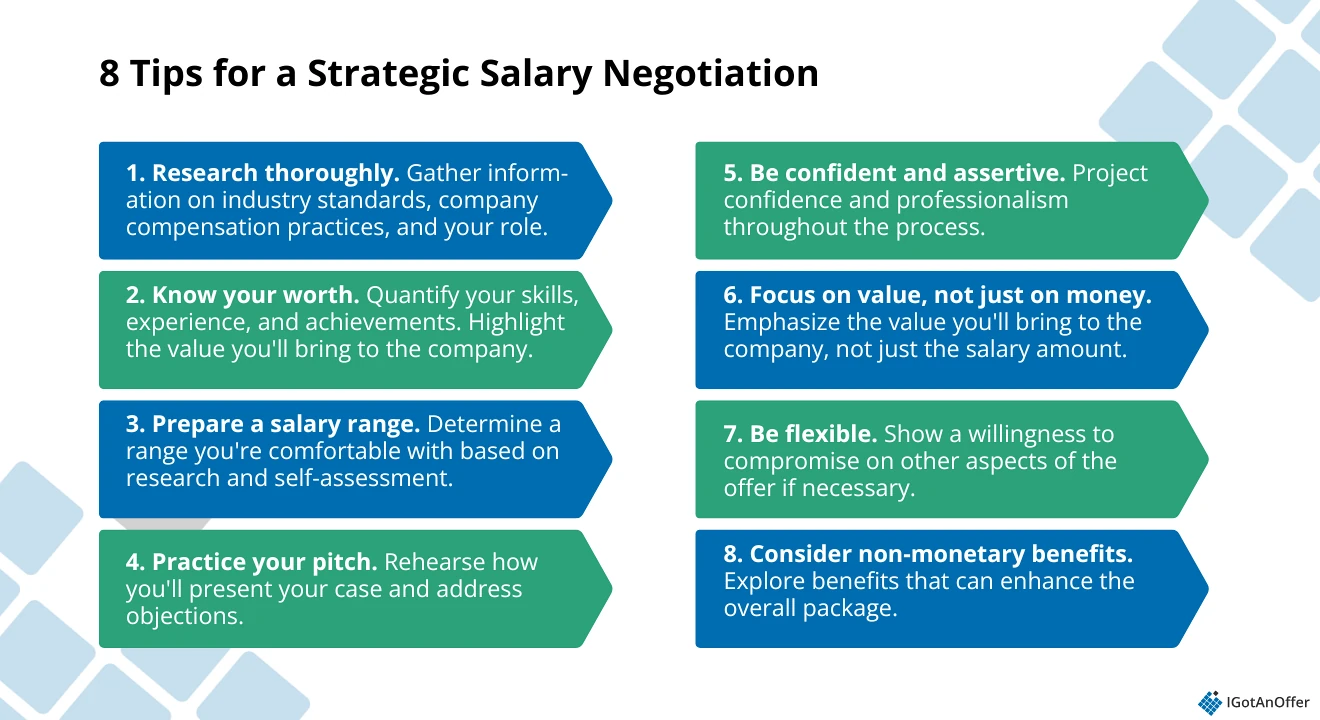
- Research thoroughly: Gather information on industry salary standards, company compensation practices, and the specific role you're applying for.
- Know your worth: Quantify your skills, experience, and achievements. Highlight the value you'll bring to the company.
- Prepare a salary range: Determine a salary range that you're comfortable with based on your research and self-assessment.
- Practice your pitch: Rehearse how you'll present your case and address potential objections.
- Be confident and assertive: Project confidence and professionalism throughout the negotiation process.
- Focus on value, not just on money: Emphasize the value you'll bring to the company, not just the salary amount.
- Be flexible: Show a willingness to compromise on other aspects of the offer if necessary.
- Consider non-monetary benefits: Explore other benefits that can enhance the overall compensation package, such as bonuses, stock options, or flexible work arrangements.
1.5 What should you NOT say or do in a salary negotiation? ↑
Here are some things to avoid doing in a salary negotiation:
Negotiate only over email
You can start the negotiation process with email, but don’t ever just stick to writing. Always offer to hop on a phone or video call in your email as it’s more personal and effective.
Answer the ‘salary expectations’ and ‘what are you currently making’ questions
Sharing a number at the start of a negotiation puts you at a disadvantage. Turn the question around to them and ask what the budget is for the role.
Revealing your current salary could pigeonhole you into the same or only a slightly higher salary. The real market rate for your role might be worth a lot more. Shift the conversation to the market standard range.
Act and speak negatively or aggressively
Entering a negotiation process, you should treat everyone involved in the process with respect.
Talk respectively with your recruiter. The recruiter is your friend in the negotiation process. Don’t give them a reason to turn against you. Never demand or give an ultimatum. Remember: you’ll be working with this person soon.
Don’t use words such as “take it or leave it” and “if you don’t like this, then I’m out.” Don’t laugh at their offers or act condescendingly. Instead, say something along the lines of “What kind of flexibility do you have?” and “What’s the best you can do without putting yourself in a bad position?”, showing concern for their side.
Likewise, when talking about your current or previous employers, avoid badmouthing. Instead, focus on the positive aspects of your career.
Show weakness, desperation, and a lack of preparation
Poor word choice can weaken your negotiation position. Phrases like “I believe...”, “I think...", or “I feel...” show a lack of confidence.
Here are other sentences/phrases you need to avoid:
- “I need a raise” - shows entitlement that may not be relevant at the initial offer stage
- “Whatever you offer” - shows a lack of preparation and disengagement
- “I can’t afford to live on that” - shows desperation and shifts the focus away from your value
Practice speaking without filler words and self-defeating statements.
To avoid filler words, use objective data. Instead of saying, “I think the market is paying between $X and $Y," say, “Market rates for this role are paying up to $Y with a median of $X.”
To avoid sounding desperate, focus on the value you’re bringing. Remind your recruiter about your years of experience or high-demand skill set.
Give in to the urgency tactic
As much as possible, employers want to get you to sign quickly. So they might urge you to negotiate as soon as you receive the offer, or give you 24 hours to decide.
Never EVER negotiate on the spot. If given an unreasonable deadline, ask for an extension. Deadlines are negotiable.
Always give yourself some space to plan your counteroffer with a mentor or coach and discuss it with family who will be affected.
Over-justify your ask
Avoid giving TOO much justification. Keep your counteroffer pitch short and sweet. As my friend Mounica Veggalam says, "Justification is our self-doubt getting in the way."
Accept the offer right away
Most importantly, the #1 thing NOT to do as soon as you get an offer: accept it. At least, not right away, not before you negotiate.
Listen, I know it's tempting. You just went through months of suffering with countless rejections and late nights preparing for interviews. But please, please, please DO NOT ACCEPT THE FIRST OFFER.
When your recruiter calls you with an offer, don’t say yes just yet. Instead:
- Express gratitude and appreciation for the offer.
- Ask questions about the offer so you can understand it better (benefits, equity, performance bonuses, etc.).
- Ask for more time to review with your family (then prepare your counteroffer over the next 1-2 days and schedule a call to discuss).
1.6 How do salary negotiation services work? ↑
Salary negotiation services typically work by providing candidates with expert guidance, advice, and support throughout the negotiation process.
They may offer services such as:
- Market research: Conducting research on industry salary standards and company compensation practices.
- Preparation: Helping candidates prepare for the negotiation by developing a strong case and practicing their pitch.
- Representation: Negotiating on behalf of the candidate or providing real-time advice during the negotiation.
- Post-negotiation support: Offering guidance on accepting or rejecting the offer and handling any follow-up negotiations.
There are many excellent salary negotiation services, and the model varies. Most platforms will require you to pay upfront per session. There are also services that offer a performance-based model where your fee depends on how much of an increase you achieved from the initial offer to the final offer.
Regardless of the service you sign up for, we recommend finding someone who is:
- Knowledgeable about the company and/or specific role you have an offer with
- Has expertise and/or experience helping people negotiate salaries
Ultimately, the best salary negotiation service for you will depend on your specific needs and budget. It's best to research and compare different services to find the one that best aligns with your goals.
Good news: we’ve done this part for you in our list of the best salary negotiation services below.
2. Best salary negotiation services and platforms↑
Here’s our recommended list of the best salary negotiation services. We selected them based on the following criteria:
- Expertise: Deep knowledge and experience in salary negotiation
- Customization: Personalized guidance tailored to individual needs and circumstances
- Support: Ongoing support throughout the negotiation process
- Results: A proven track record of helping clients achieve higher salaries
#1 IGotAnOffer (Best overall) ↑
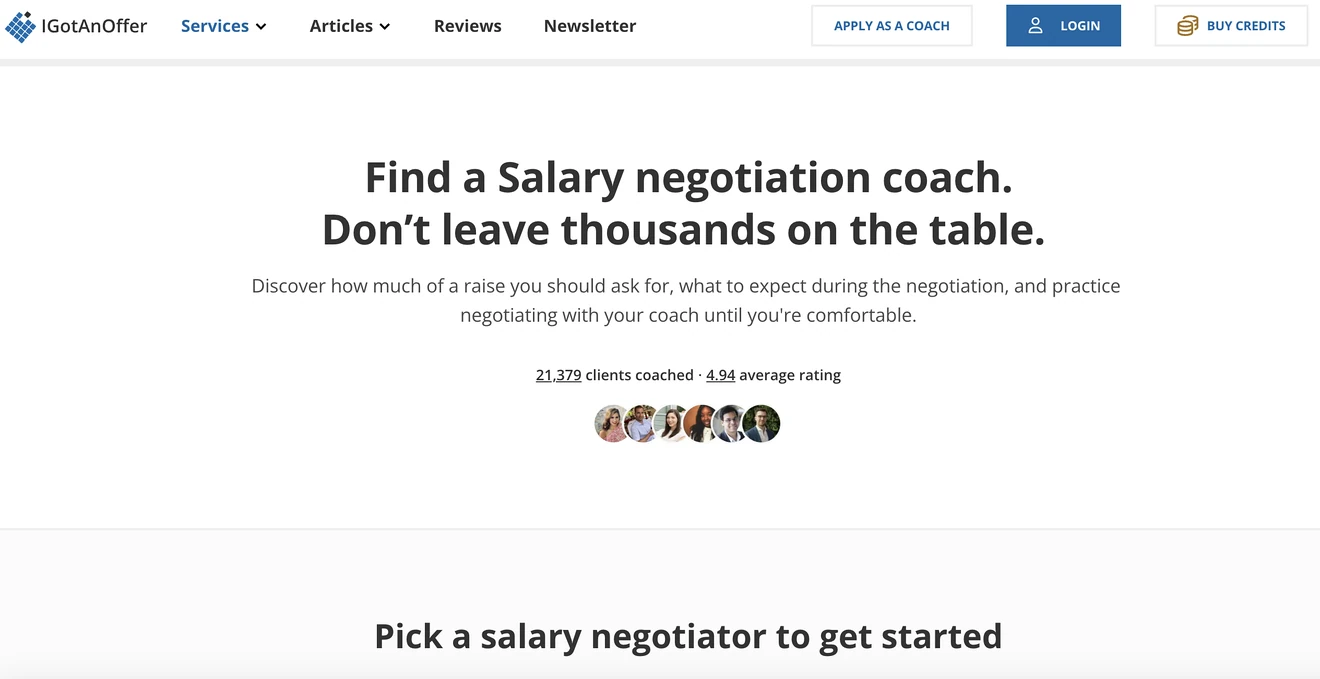
We may be a little biased here, but with an average rating of 4.9 from over 21,000 satisfied candidates, we’re more than justified with our top choice.
IGotAnOffer has over 300 coaches from top companies such as Google, Meta, McKinsey, Goldman Sachs, and many more, many of whom specialize in salary negotiation.
These coaches have firsthand experience of salary negotiation themselves from both sides of the negotiating table. Most importantly, they have a track record of helping candidates achieve significant compensation raises.
Each coaching session is 1 hour long, with personalized guidance for your specific needs and situation. Before and after your sessions, you can continue to be in touch with your coach over email so you can ask any additional questions.
Finding the right coach for you is easy. Click on a coach’s profile and instantly see their hourly availability. To book a session, you’ll first need to buy credits. Each credit starts at $50. Coaches cost 2,3, 4, or 5 credits per 1hr coaching session.
IGotAnOffer credits don’t expire, so you can use your hours for salary negotiation and other coaching services. You can also use the coaching hours you bought to work with multiple coaches.
Clients who have worked with IGotAnOffer’s salary negotiation coaches have significantly increased their salaries by up to $100K annually.
- Pricing: 2, 3, 4, 5 credits per 1hr coaching (1 credit=$50)
- Reviews: 4.94 on own site, 4.8 on Google
- Coaching expertise: All coaches have worked at top companies (Google, McKinsey, etc.).
- Money-back guarantee: 100% refund if you're not satisfied
- Pros: Easy booking system, reasonable rates, great range of coaches
- Cons: Online-only, in-person not available
#2 The Salary Negotiator (Best for comprehensive negotiation support) ↑

The Salary Negotiator specializes in job offer negotiations. When you book their service for a fixed fee of $2,250, you’ll work directly with the founder, Brandon Bramley. He’ll help you build a strategy based on the offer you got, and will be available to you for support until you receive an offer.
Their promise is to get a $10,000 increase from your initial offer. If they can’t help you get that, you’re eligible for a refund.
This is a premium service, hence it’s only available for candidates who make $130,000+ per year. Still, it’s a steep price to pay, especially compared to IGotAnOffer, where salary negotiation coaches can help you get a $10,000-$50,000 increase for considerably less.
- Pricing: $2,250 for salary negotiation package
- Reviews: 4.9 on Trustpilot
- Coaching expertise: Work with its founder, Brandon Bramley; no information on the other coaches
- Money-back guarantee: Guaranteed increase of $10,000 from your initial offer, or your coaching fee is refunded
- Pros: Offers coaching and course options, as well as templates and scripts for a fee
- Cons: No information on other coaches; limited availability
#3 Salary.com (Best on a budget) ↑
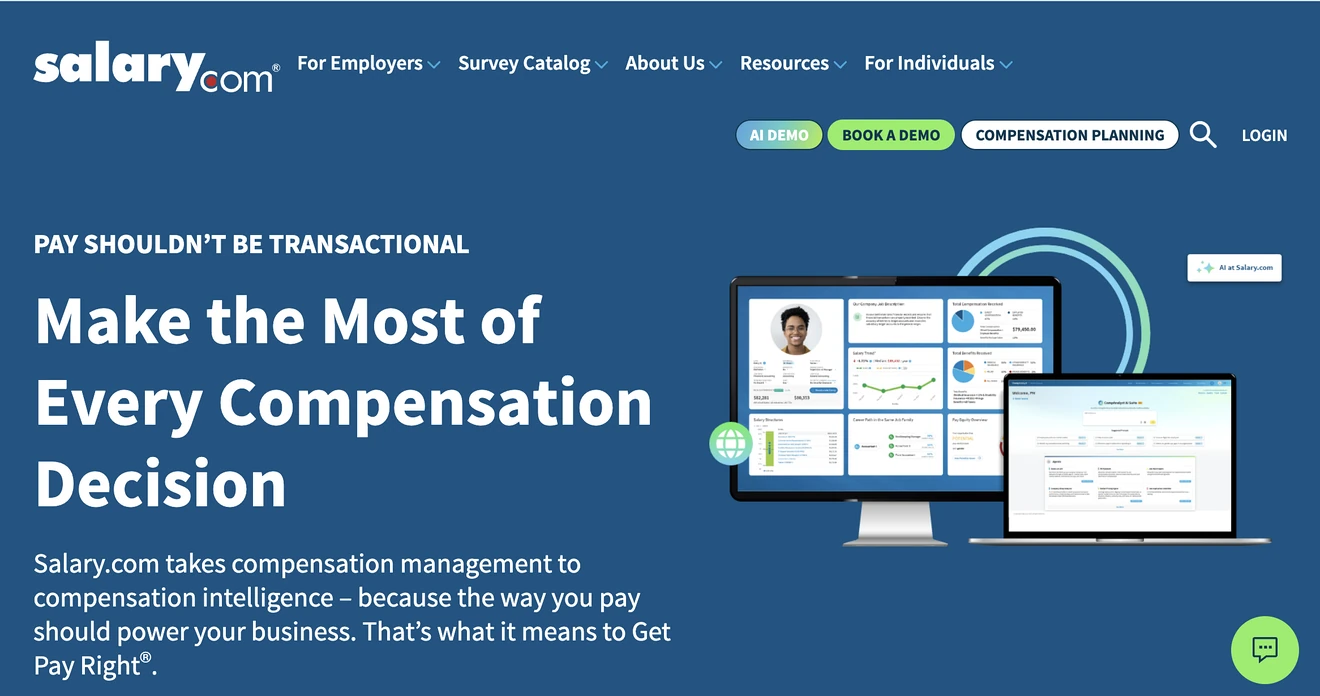
Salary.com is one of the best sites for salary negotiation guides and other relevant information. It is particularly suitable for those on a budget with its free and low-cost tools and services.
It has a feature called Salary Wizard, which allows you to research and compare salaries for specific job titles, locations, and experience levels. This can help you understand the market rate for your position.
It also has a detailed Salary Negotiation Guide which covers effective salary negotiation strategies, including tips on how to research, prepare, and conduct the negotiation process.
- Pricing: Free, with options for paid services
- Reviews: 4.4 on G2
- Coaching expertise: No info
- Money-back guarantee: None for the paid services
- Pros: Free quality service for salary negotiation research, with an option to upgrade to paid services
- Cons: Time-consuming
#4 Rora (Best pay-on-results)
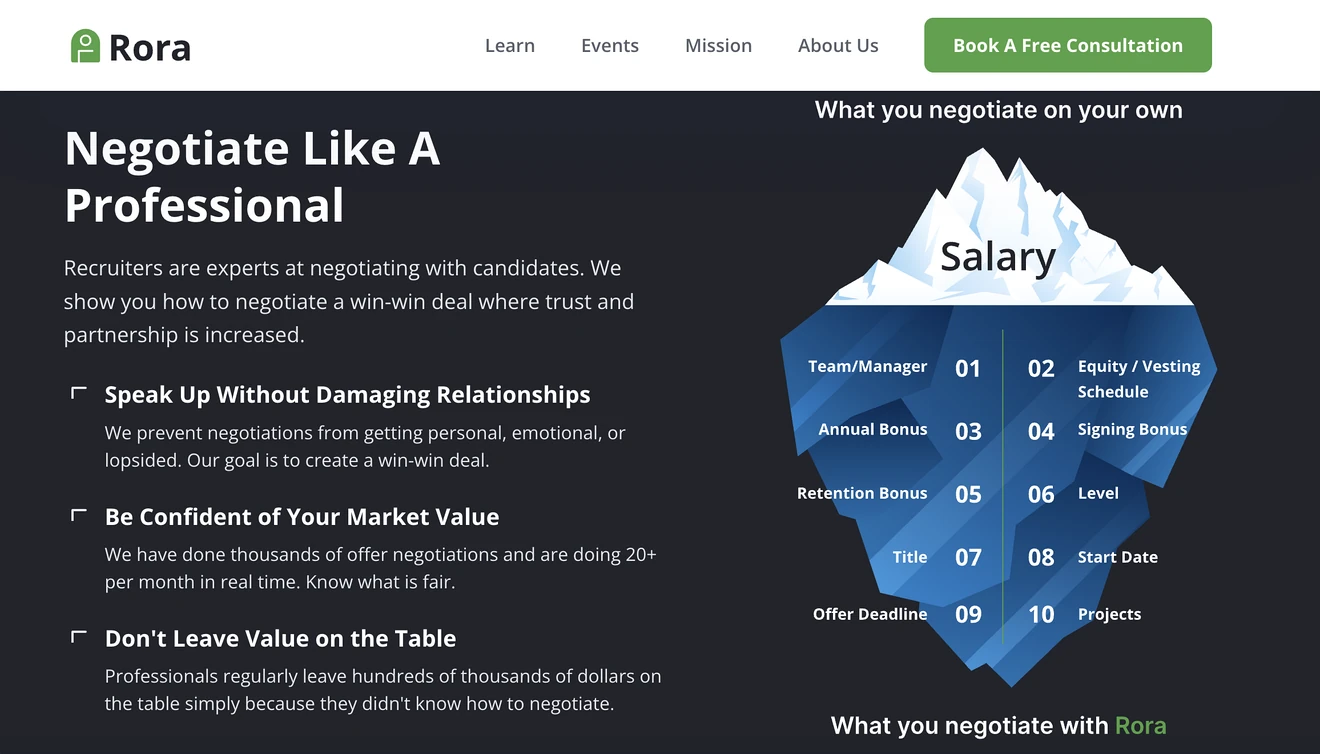
Rora is a well-reviewed career support website that specializes in salary negotiation coaching, mock interviews, and career coaching. They specialize in tech and research roles.
They charge fixed fees for their interview and career coaching. But for their salary negotiation services, they require a percentage of your negotiated job offer increase. If you don’t end up getting an increase, you don’t need to pay.
- Pricing: Pay a % of your negotiated job offer
- Reviews: 4.9 on TrustPilot
- Coaching expertise: 9 years of salary negotiation coaching experience, specializing in tech
- Money-back guarantee: No increase, no fee
- Pros: Pay only when you get an increase
- Cons: No coach profiles available on the website
#5 Fearless Salary Negotiation (Best for executives) ↑

Fearless Salary Negotiation is specifically designed for high earners, or those already earning at least $400K annually. It was founded by expert salary negotiation consultant Josh Doody, author of the Amazon bestseller Fearless Salary Negotiation: A step-by-step guide to getting paid what you’re worth.
Josh offers a full-service, one-on-one coaching package from strategy to first-year results and to salary negotiation completion. He charges $4K for strategy and 10% on salary increments for first-year results, but these will be paid only on completion.
To date, Doody has helped tons of clients increase their salaries by 30%, at an average of $48,492. He’s able to get significant results for clients who work at Alphabet, Amazon, Amazon AWS, Apple, Facebook, Google, and GitHub. The case studies on his site show salary increases of as much as $160K.
- Pricing: $4,000 for strategy + % on first-year salary increase, to be paid on completion
- Reviews: 4.2 rating on Amazon for his book, with case studies of coaching services on his site
- Coaching expertise: Full-service 1-on-1 coaching until completion
- Money-back guarantee: Yes
- Pros: Full service from strategy to completion, and fees are payable only upon satisfactory completion
- Cons: Higher-priced compared to other salary negotiation platforms and recommended only for high earners
#6 Levels.fyi (Best for tech) ↑
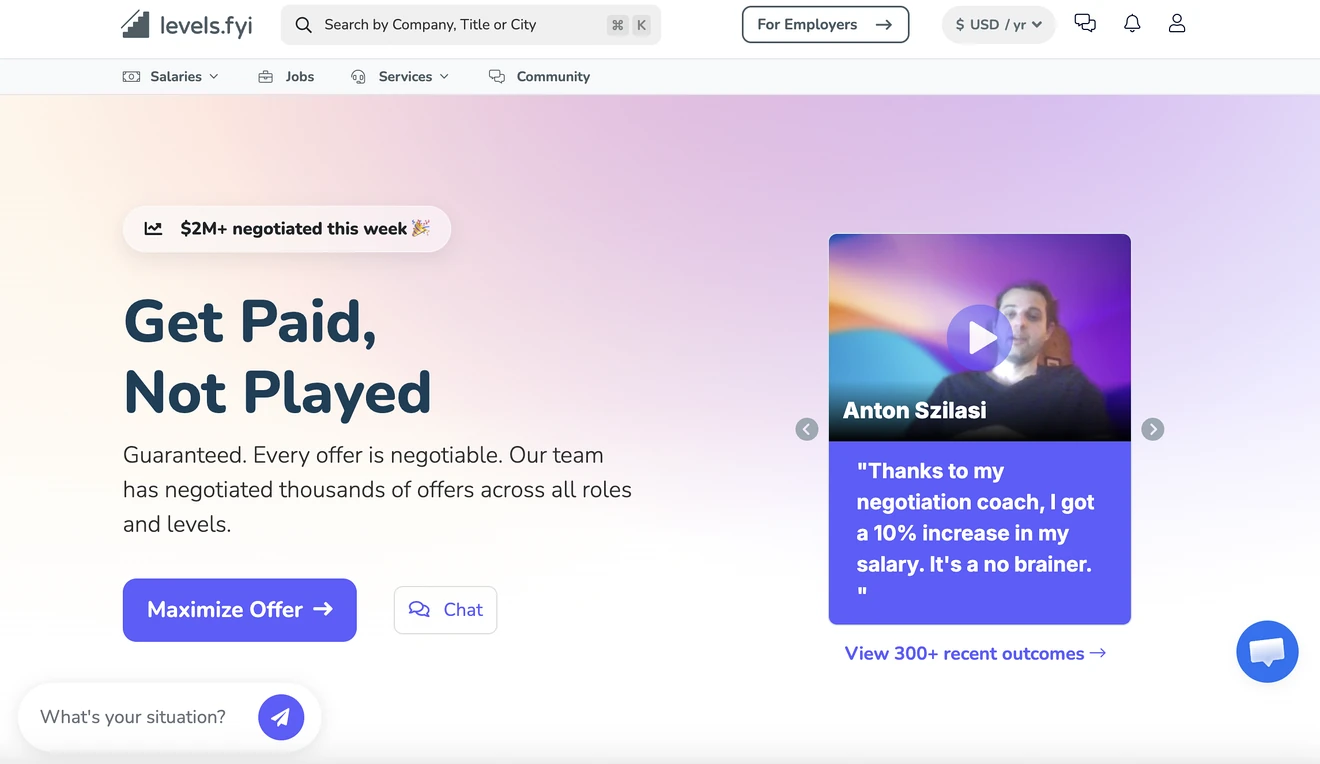
If you’ve started researching compensation ranges for your role, you might have already come across Levels.fyi.
Levels.fyi is known as one of the best sites for salary negotiation, as it contains community-sourced in-depth salary information for tech and other industries. Since starting in 2017 as a side project, it now has 1.5 million users every month and offers job support services, including salary negotiation.
Its salary negotiation service guarantees salary increases. If you don’t get an increase as promised, you’re eligible for a refund. Given its pricey rate, this service is only recommended for mid-level up to executive roles.
- Pricing: starts at $1,250
- Reviews: 4.7 rating on Trustpilot
- Coaching expertise: Full-service 1-on-1 coaching until completion
- Money-back guarantee: Yes, based on guaranteed increase figure quoted in the package
- Pros: Guaranteed increase from baseline offer; unlimited email support with coach for the duration of the package
- Cons: No info on individual coaches except that they are industry recruiters with at least 5 years of experience
Read our full review of Levels.fyi and our recommended alternatives here.
3. Salary negotiation resources ↑
We also recommend the resources below for your further salary negotiation preparation.
You can learn more from our job offer negotiation guides:
- Meta salary negotiation guide
- Amazon salary negotiation guide
- Google salary negotiation guide
- Apple salary negotiation guide
- Product manager salary negotiation guide
- 10 Rules of Salary Negotiation
Other salary negotiation resources:
- Ultimate Negotiation Guide (American Negotiation Institute)
- 15 Rules for Negotiating a Job Offer (Harvard Business Review)
- How to Negotiate Your Salary in the Age of Pay Transparency Laws (Harvard Business Review)
- O*net (Department of Labor-sponsored website that provides a comprehensive look at the skills required for specific jobs across all industries, plus median pay per job)
- H-1B Data (For foreign nationals working for U.S. employers)
- Payscale (Salary comparison website)
- Glassdoor (Salary comparison website)
Get expert salary negotiation coaching
Our coaching team has run thousands of salary negotiations as recruiters and hiring managers. They negotiate daily and are therefore extremely comfortable with the process.
A negotiation done well should usually yield from $10K+ to $100K+ in increase depending on your role and level. So, spending $150 to $500 on getting help from a coach has a huge ROI of at least 10x.
Here’s what our salary negotiation coaching team can help you with:
- Finding the weaknesses in your initial offer
- Determining what a reasonable total compensation is for you
- Practicing mock negotiation over the phone or video call
- Giving you advice on specific situations we haven’t covered above








